Indigenous Governance Database
NNI and Harvard Project Research
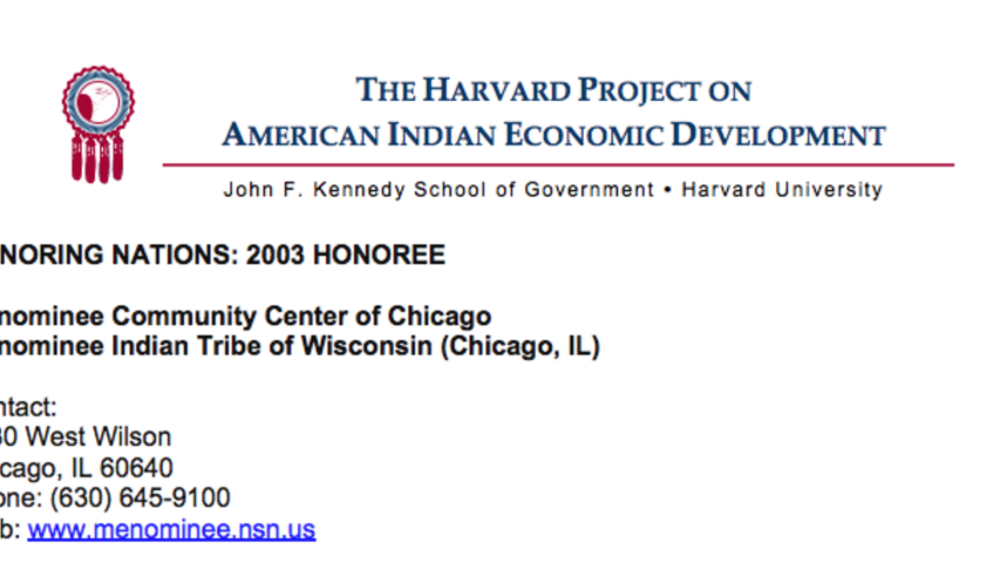
Menominee Community Center of Chicago
A unique partnership between an urban Indian center and a tribal government, the tribally funded Community Center serves nearly 500 Menominee tribal citizens living in the greater Chicago area. The Center and the tribal government work together to ensure that all of its citizens are actively…
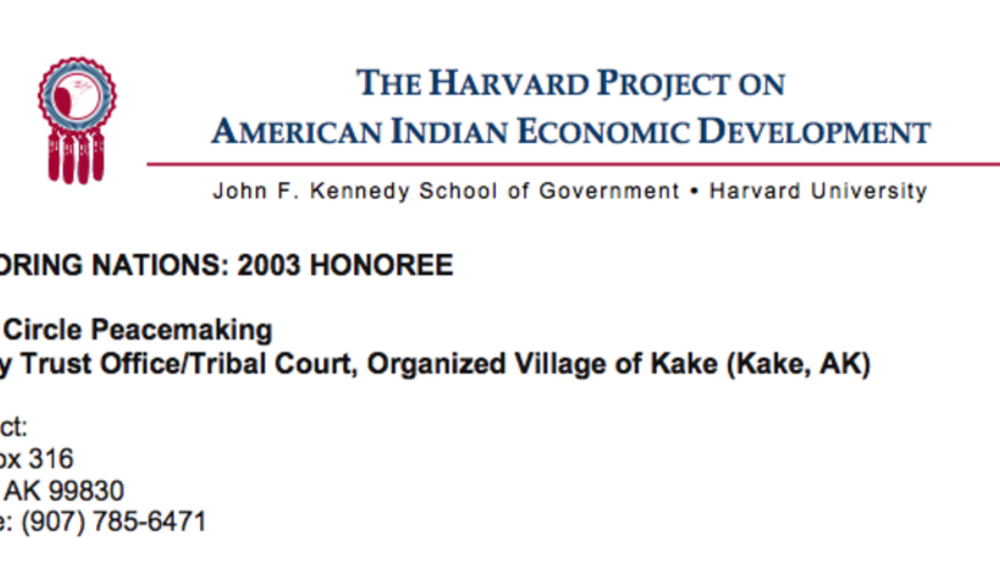
Kake Circle Peacemaking
Restoring its traditional method of dispute resolution, the Organized Village of Kake adopted Circle Peacemaking as its tribal court in 1999. Circle Peacemaking brings together victims, wrongdoers, families, religious leaders, and social service providers in a forum that restores relationships and…
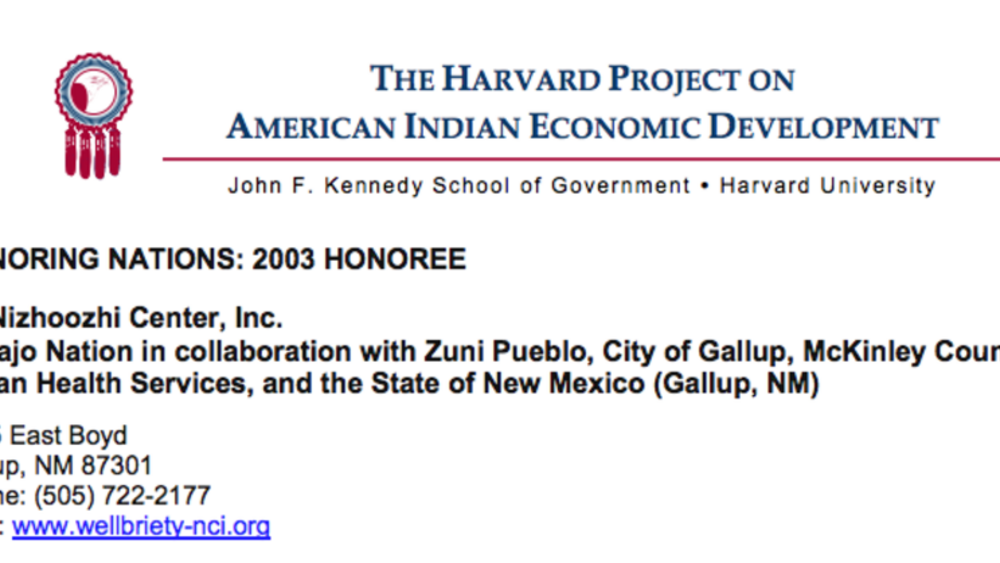
Navajo Nation's Na'Nizhoozhi Center, Inc.
Responding to the distressing rates of accidents, deaths, and other alcohol-related problems in Gallup, NM, the Navajo Nation partnered with Zuni Pueblo, the City of Gallup, McKinley County, and the State of New Mexico to establish the Na’Nizhoozhi Center in 1992. The Center has been an effective…
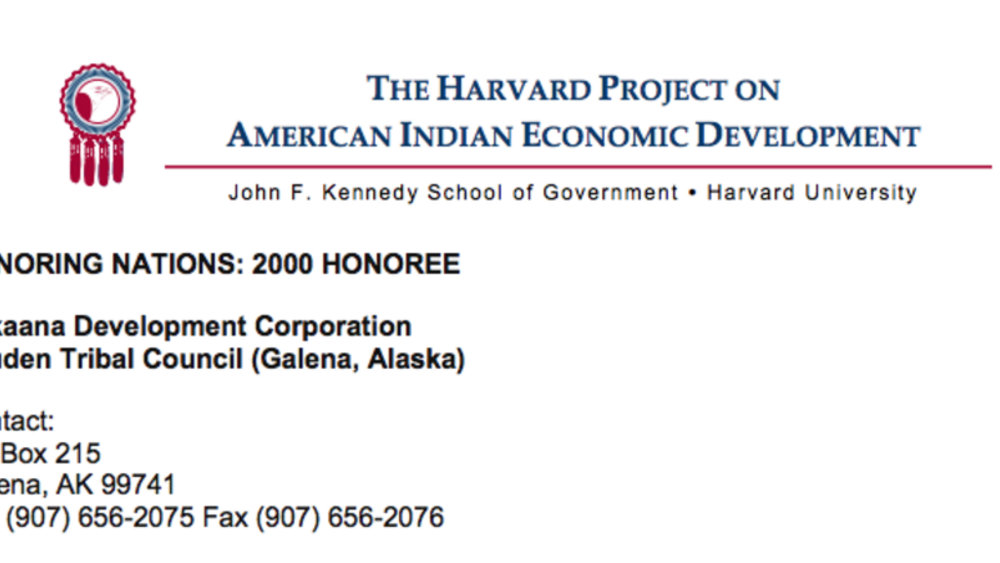
Yukaana Development Corporation (Louden Tribal Council)
The Louden Tribal Council created the Yukaana Development Corporation in 1998 to address the concerns of environmental degradation and environmental justice through training and employment. Under a contract with the US Air Force, the tribally owned Corporation cleans contamination caused by a local…
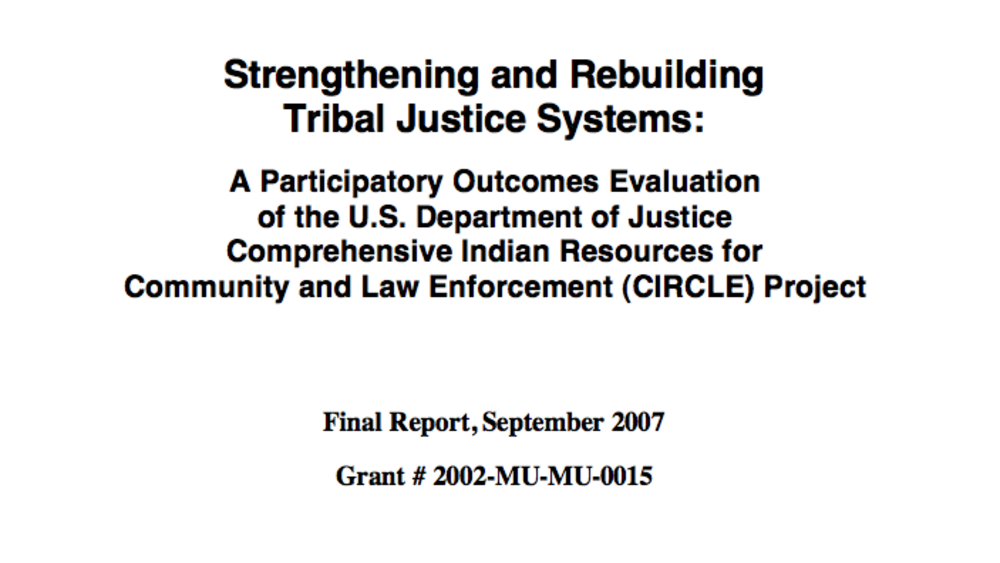
Strengthening and Rebuilding Tribal Justice Systems
Assesses the U.S Department of Justice's Comprehensive Indian Resources for Community and Law Enforcement (CIRCLE) Project, which aimed to help participating tribes implement strategies for making the individual components of their justice systems work better in addressing crime and related social…
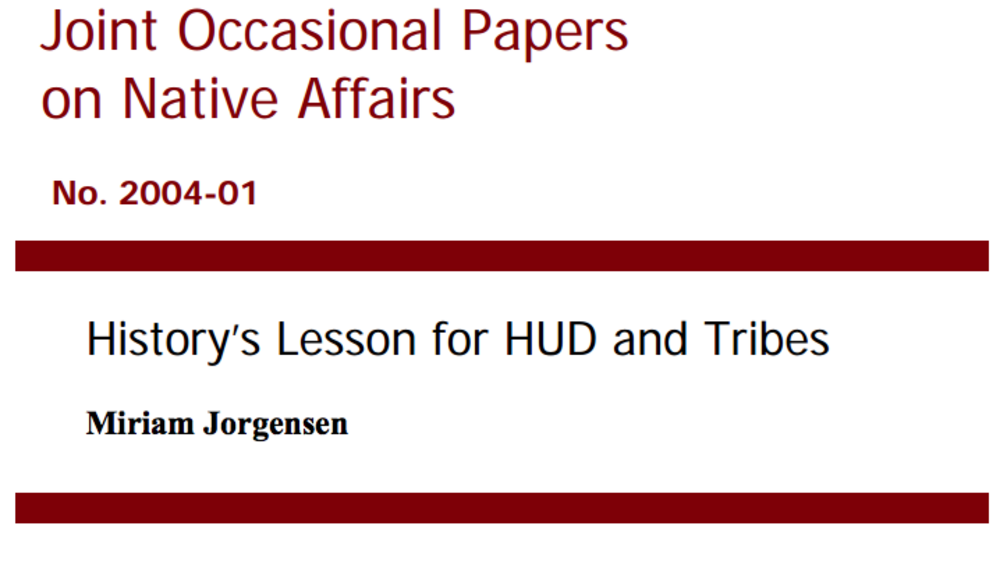
History's Lesson for HUD and Tribes
In 1998, Indian housing entered a new era. HUD ended its practice of channeling funds for Washington-designed Indian housing programs to HUD-sponsored local Indian Housing Authorities (IHAs) and converted programmatic funds into block grants to tribal housing agencies, which were allowed to design…
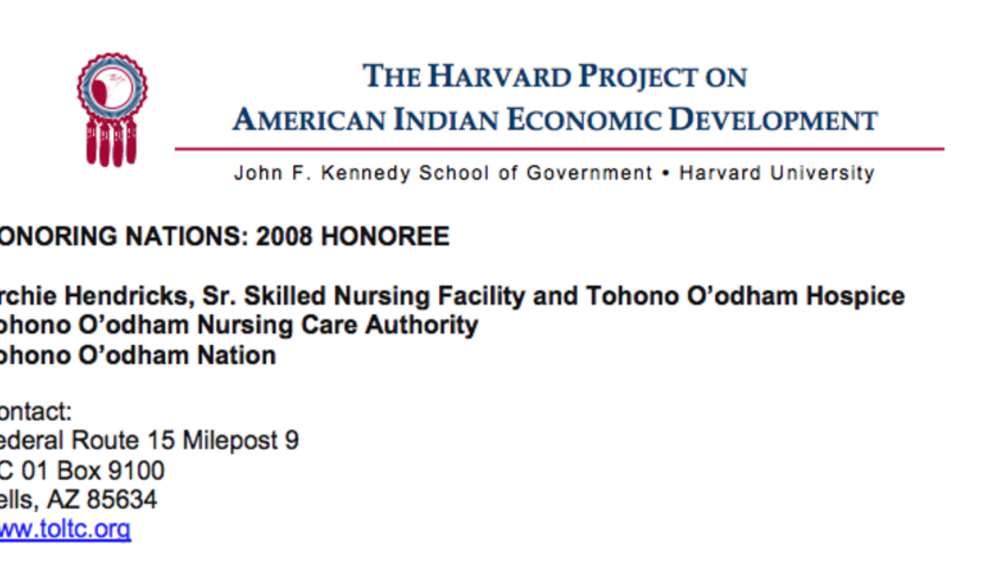
Archie Hendricks, Sr. Skilled Nursing Facility and Tohono O'odham Hospice
For decades Tohono O’odham elders in need of skilled nursing had to move far away from family and friends to receive care, or stay home and forgo long-term care services. However, with the opening of the Archie Hendricks, Sr. Skilled Nursing Facility, O’odham elders can now remain in the community…

Making First Nation Law: The Listuguj Mi'gmaq Fishery
This is a case study that explores Listuguj Mi'gmaq law, an assertion and manifestation of the nation's right to fish and to govern its people, lands, and waters in its own ways. It discusses the genesis, application, and effects of the law and how a First Nation not only reclaimed their inherent…
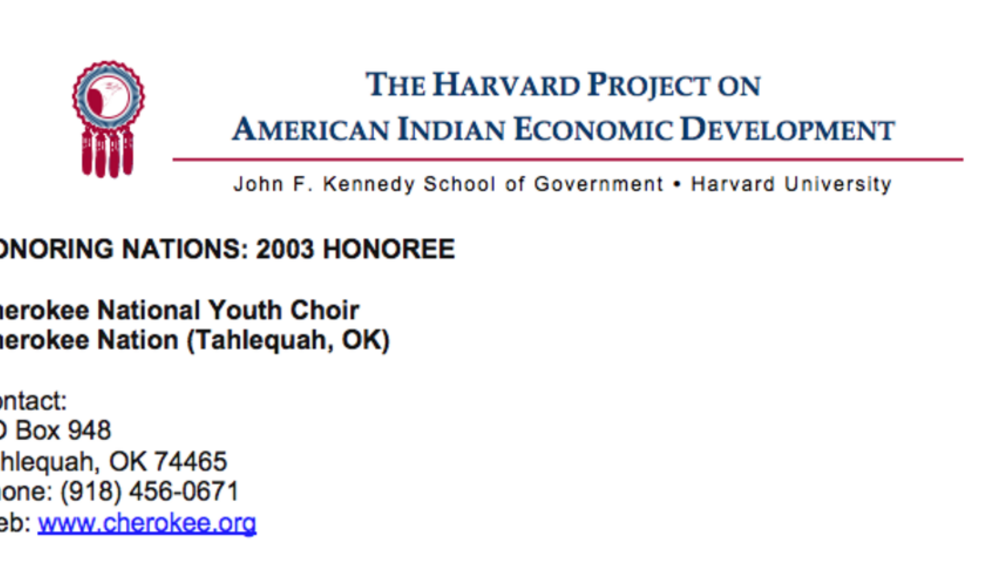
Cherokee National Youth Choir
The Youth Choir presents an innovative approach to promoting and encouraging the use of the endangered Cherokee language among its youth while also instilling Cherokee cultural pride. The award-winning choir — comprised of 40 young Cherokee ambassadors — has performed in venues across the US,…
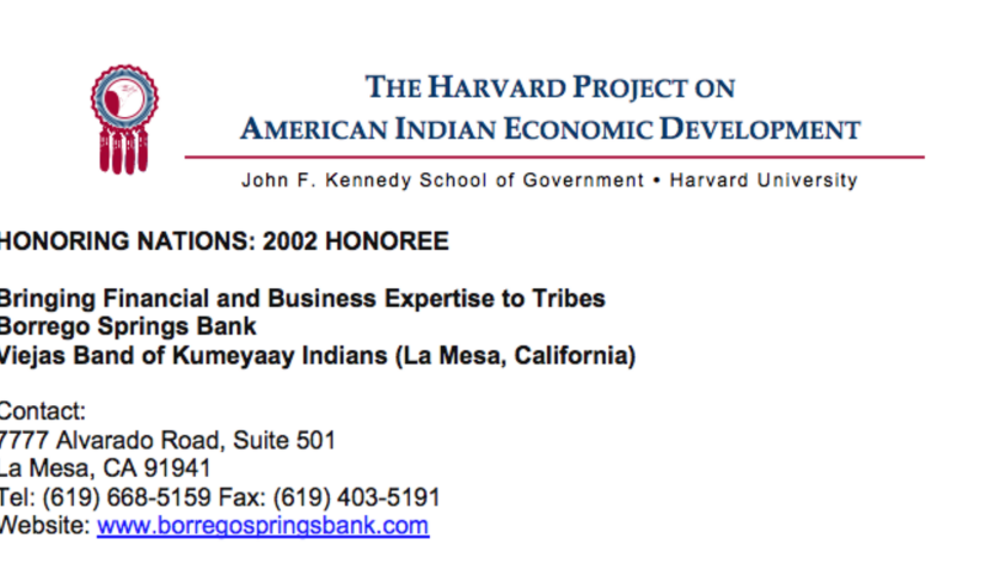
Borrego Springs Bank of the Viejas Band
The first American Indian-owned bank in California, the Borrego Springs Bank (BSB) offers a full range of services to tribal governments and Native-owned businesses in order to facilitate the entrepreneurial growth of American Indian tribes. With more than $74 million in assets and two full service…
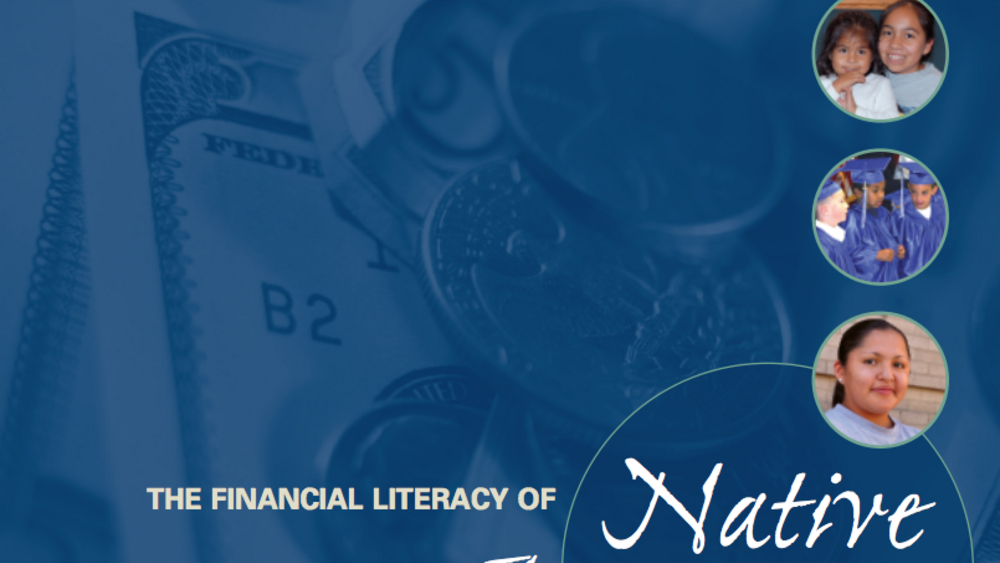
The Financial Literacy of Native American Youth
Tests of high school students conducted by the Jump$tart Coalition for Personal Financial Literacy indicate that Native American youth are less prepared to make informed financial choices than most of their peers. Jump$tart and the members of the Native Financial Education Coalition (NFEC) are…
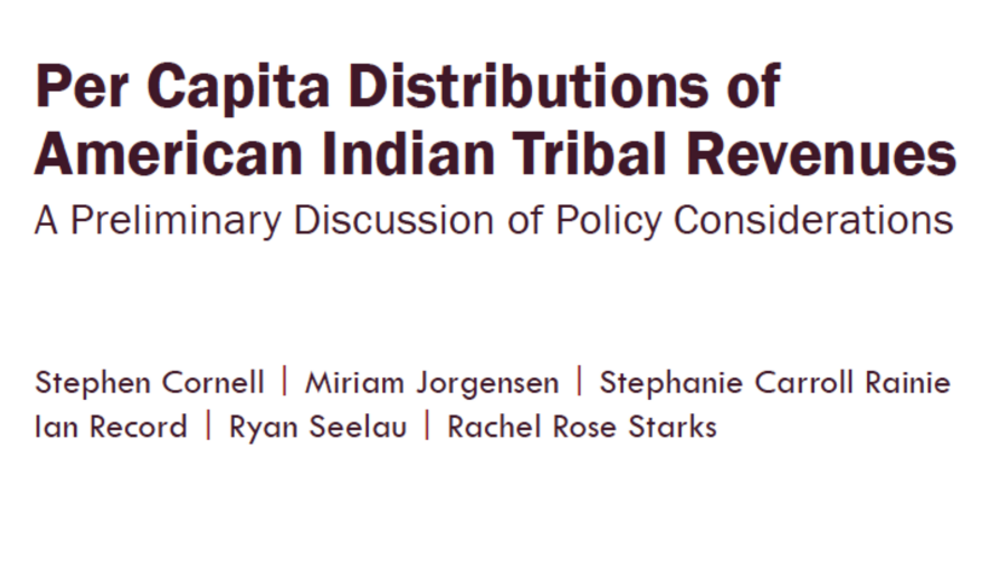
Per Capita Distributions of American Indian Tribal Revenues: A Preliminary Discussion of Policy Considerations
This paper examines policy considerations relevant to per capita distributions of tribal revenues. It offers Native nation leaders and citizens food for thought as they consider whether or not to issue per capita payments and, if they choose to do so, how to structure the distribution of funds and…
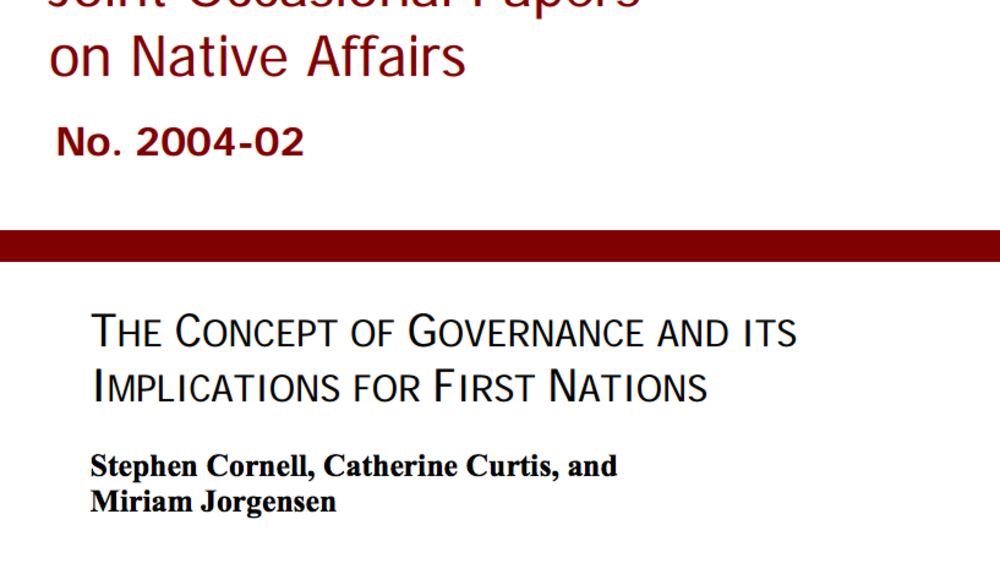
The Concept of Governance and its Implications for First Nations
What is governance? What is government? What does each do? And what distinguishes good governance - or good government - from bad? Why is the quality of governance important to the success of human societies? And what is the significance and meaning of self-governance? And What does effective self-…
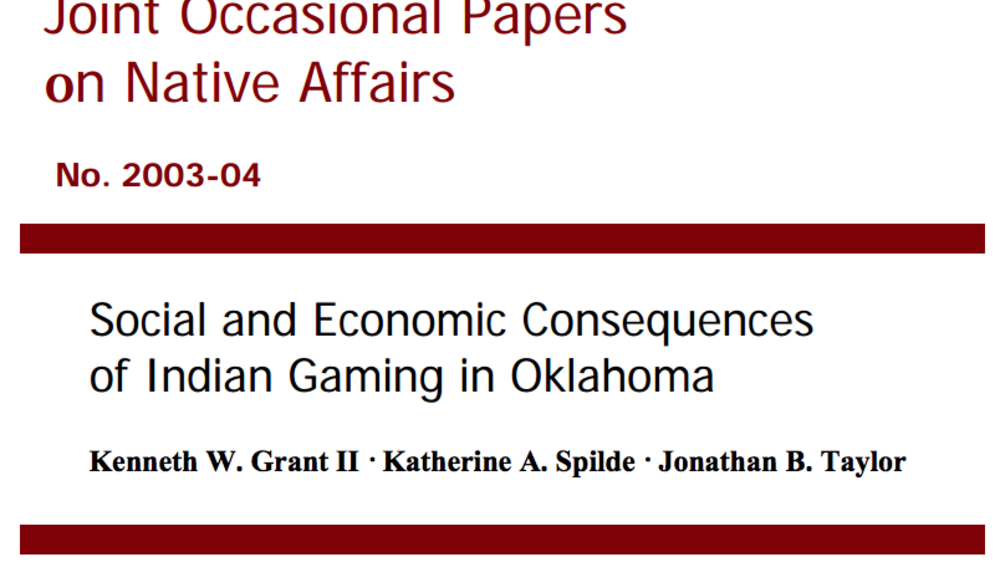
Social and Economic Consequences of Indian Gaming in Oklahoma
Much has been written in the mainstream press about Indian gaming and its impact on Indian and non-Indian communities. The debate, however, tends to be focused on Class III or “casino-style” gaming. The effects of Class II gaming have largely been overlooked by the press and, unfortunately, by the…

Indigenous Peoples, Poverty and Self-Determination in Australia, New Zealand, Canada and the United States
Australia, New Zealand, Canada and the United States are among the world’s wealthiest nations. It is an often noted irony–and an occasional source of embarrassment to the governments of these countries–that the Indigenous peoples within their borders are in each case among their poorest citizens.
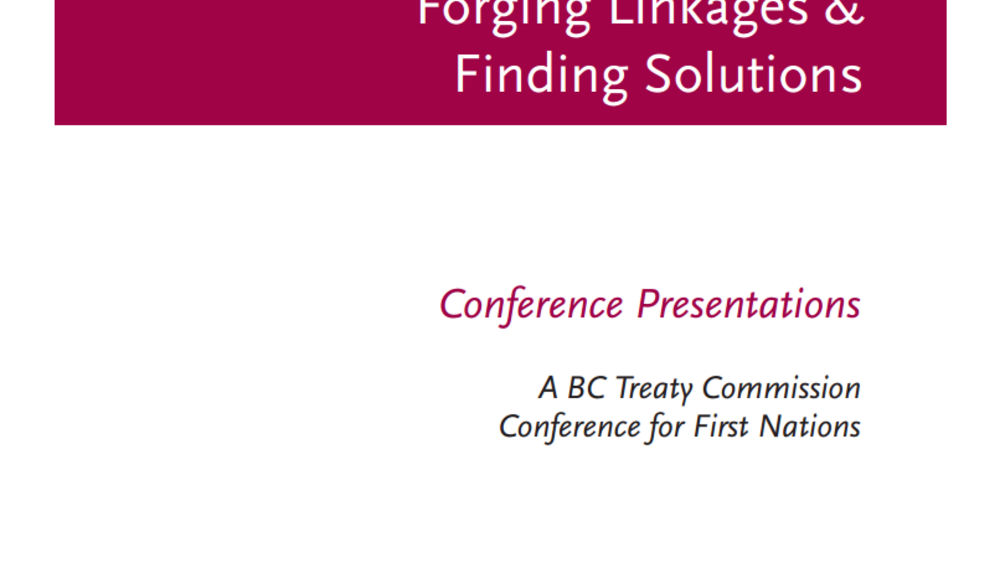
Rights, Governance, and the BC Treaty Process
The keynote address given at the BC Treaty Commission Conference for First Nations that discusses the rights, governance and the BC treaty process. Cornell emphasizes the fact that treating making can be more than a process. It can lead to the phenomenal concept of nation building that is sweeping…
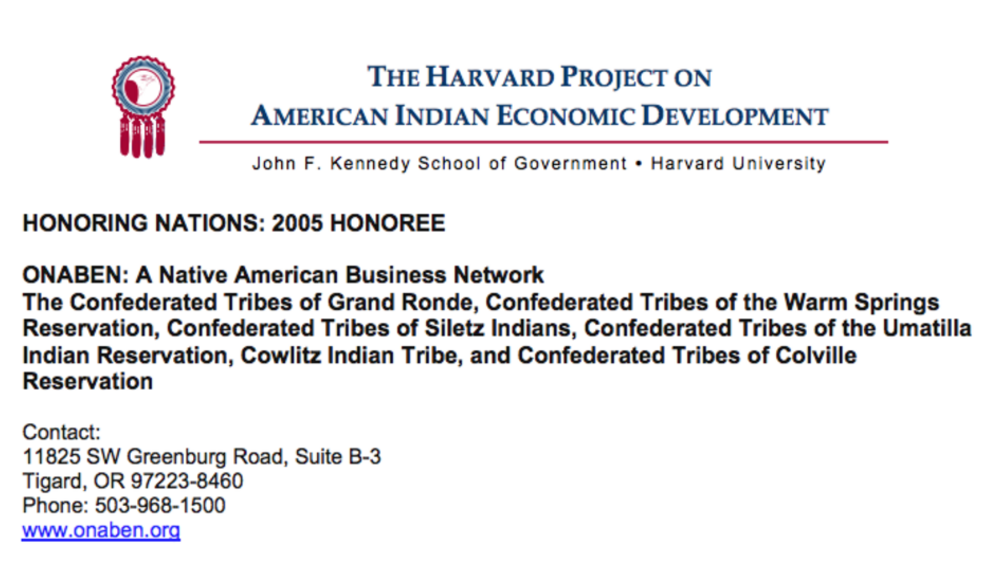
ONABEN: A Native American Business and Entrepreneurial Network
Founded by a consortium of Native nations in the Pacific Northwest, ONABEN's mission is to increase self-reliance by promoting the development of tribal-citizen-owned small businesses and the diversification of reservation economies. ONABEN's programs provide financial counseling, business…
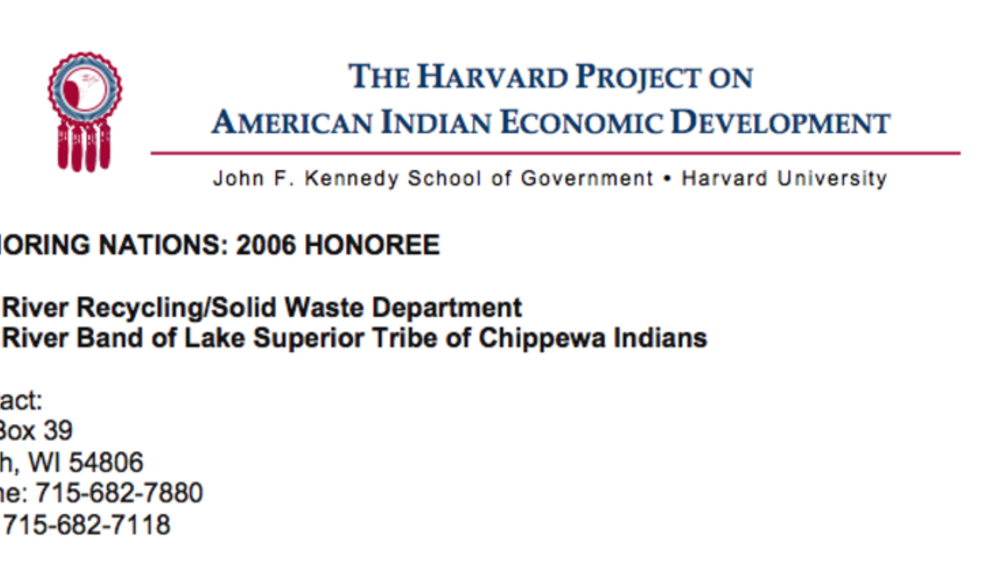
Bad River Recycling/Solid Waste Department
The Bad River Recycling/Solid Waste Department created environmentally sound practices of managing and disposing of waste generated on the reservation, ending cycles of harm to tribal citizens, lands, and water. Historically, waste was not only hazardous, but noticeable and abundant on reservation…
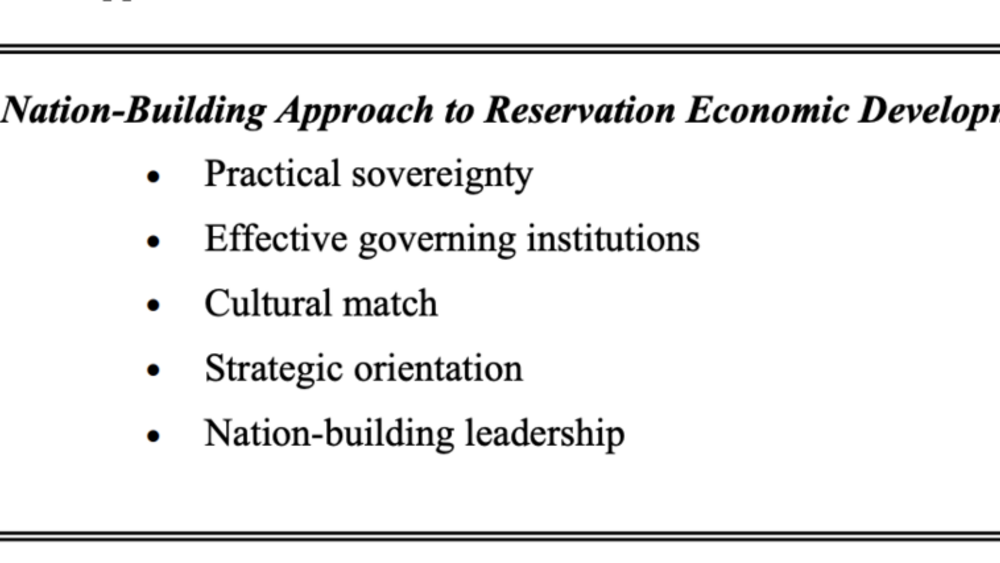
Two Approaches to Economic Development on American Indian Reservations: One Works, the Other Doesn't
As much of the world knows, American Indian nations are poor. What much of the world doesn't know is that in the last quarter century, a number of these nations have broken away from the prevailing pattern of poverty. They have moved aggressively to take control of their futures and rebuild their…
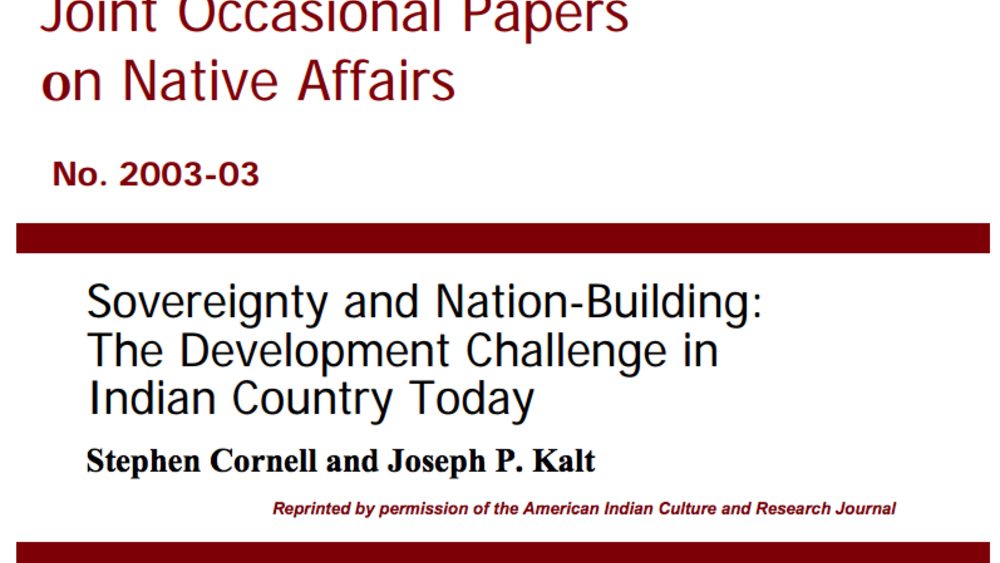
Sovereignty and Nation-Building: The Development Challenge in Indian Country Today
The Indian nations of the United States face a rare opportunity. This is not the occasional business opportunity of reservation legend, when some eager investor would arrive at tribal offices with a proposal guaranteed to produce millions of dollars for the tribe--although such investors still…
Pagination
- First page
- …
- 6
- 7
- 8
- …
- Last page
